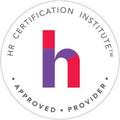A PESTEL analysis is a strategic tool that organizations can use to assess and consider external factors that may impact their operations. The acronym stands for Political, Economic, Social, Technological, Environmental, and Legal factors. By integrating insights from a PESTEL analysis into organizational strategies, companies can enhance workforce resiliency and agility.
Members applied the PESTEL analysis to their organizations and shared strategies and current opportunities to enhance employee happiness, health, and productivity, while ensuring resilience and agility in the face of external challenges.
Meeting Highlights:
|
|
|
We used two familiar frameworks to focus the conversation.
|
|
|
|
|
|
The Circle of Concern, Influence, and Control framework helped us concentrate on areas where individuals have control and influence, while acknowledging external factors that are beyond their control. This helps foster a more proactive mindset by prioritizing efforts and resources on manageable aspects.
|
|
|
|
We then used the PESTLE Analysis framework to guide our discussion of current issues that may be having an impact on employee well-being. (This framework is used to identify key macro-environmental factors—political, economic, social, technological, legal, and environmental—that can impact an organization's strategy. Anticipating external trends can enable businesses to make informed strategic decisions.
|
|
|
|
|
|
|
Implications to Holistic Wellbeing
|
|
|
|
|
|
Concerns were global and widespread - employer response to increased protests/ activism, upcoming elections in many countries, and the Israel/Hamas conflict.
|
|
|
|
Employees are experiencing a heightened sense of anxiety and a need for greater psychological safety and space to process these events.
|
|
|
|
|
|
High inflation rates for goods and services topped the list. New and proposed legislation will also have an impact. (see Legal, below)
|
|
|
|
There is a pressing need for pay equity and transparency to address financial stress. Additionally, there may be an increased uptake in EAP services and mental health days as employees navigate economic pressures.
|
|
|
|
|
|
Participants raised more concerns in this area than any other. As with economic factors there was a big overlap with legal concerns.
|
|
|
|
There are more conversations about divisive issues taking place in the workplace. Employees may need resources on how to process raw emotions.
|
|
|
|
|
|
To no one's surprise, the conversation centered on the impacts of AI and Generative AI on all aspects of the employee life cycle.
|
|
|
|
There is increased fear of job loss and wage insecurity, and a growing need for clear communication and opportunities to learn and upskill.
|
|
|
|
|
|
Legal and regulatory changes span many other categories and included AI regulation, impact of minimum wage and no-compete laws, and changing regulations on DEI policy
|
|
|
|
The volume of change may create uncertainty and affect workplace dynamics. A comprehensive summary of implications for one's industry and workforce population would be useful.
|
|
|
|
|
|
Extreme weather patterns pose real risks to personal safety and property. At the same time, sustainability initiatives feel increasingly politicized.
|
|
|
|
There is more need for quick access to funds for covering damages. Offering earned wage access is a possibility - especially for lower-income or hourly workers.
|
|
|
There are actions well-being leaders can take.
|
|
|
|
Many of the issues raised in our exchange meeting are echoed and expanded on in an article (written by i4cp founder Kevin Oakes) published this week in Human Resource Executive. In it, he cites sage advice offered by Hubert Jolly, senior lecturer at Harvard Business School and former CEO/chairman of Best Buy.
- Monitor risks and vulnerabilities. Develop a heat map of societal issues and identify areas where your company may be vulnerable and at risk of becoming a target.
- Proactively plan for upcoming issues. Inventory issues that are likely to come up in the upcoming months and years and develop an appropriate plan around them. This approach allowed many companies to prepare ahead of the Supreme Court decision to overturn Roe v. Wade.
- Double down on what you can do and control rather than what you can say. Short but sweet: Focus more on doing and less on speaking. Jolly contrasts how Delta’s CEO spoke out about Georgia’s new election rules vs. UPS’ decision to stay quiet and support initiatives.
- Put those in your care first. This seems simple but is often overlooked. Put employee interests above all else. This not only includes protecting their safety but also consulting with them to understand what matters to the workforce to help guide the company’s choices.
Read Kevin's full article, Employee activism in the age of Israel-Palestine and the ‘year of elections’.
|
|
|
| |
|
Dig Deeper into Resources
|
|
|
|
|
|
This meeting is exclusively for members of the Employee Experience Exchange.
If you'd like to participate, please contact us to see if you qualify.
If you are an i4cp member, please log in to access the registration/meeting details.
log in
This event is approved for certification credits.














